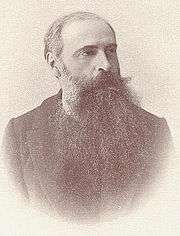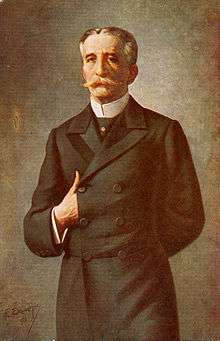December 1915 Greek legislative election
Parliamentary elections were held in Greece on 19 December [O.S. 6 December] 1915.[1] They were boycotted by Eleftherios Venizelos and his party, the Liberal Party, as unconstitutional, a result of a confrontation with King Constantine I over the country's participation in World War I. Venizelos considered Greece as a close and loyal ally of the United Kingdom of Great Britain and Ireland and the French Third Republic, while Constantine I, who was affiliated with the House of Hohenzollern (the German royal family), favored neutrality.
| |||||||||||||||||||||||||||||
All 335 seats of the Greek Parliament 168 seats needed for a majority | |||||||||||||||||||||||||||||
|---|---|---|---|---|---|---|---|---|---|---|---|---|---|---|---|---|---|---|---|---|---|---|---|---|---|---|---|---|---|
| |||||||||||||||||||||||||||||
| |||||||||||||||||||||||||||||
| This article is part of a series on |
| Politics of Greece |
|---|
 |
|
Judiciary
|
|
|
|
Although the electoral body supported Venizelos, Constantine insisted on his position and did not hesitate to confront the democratically elected government. Venizelos resigned and withdrew temporarily from the political fore, leading the crisis to its worst point.
Only right-wing parties participated in the elections. In a few months the crisis would almost become a civil war (the "National Schism") between the supporters of Venizelos, who created their own government in Thessaloniki, while the official government of Athens remained under the control of Constantine.
Results
| Party | Votes | % | Seats |
|---|---|---|---|
| Nationalists | 256 | ||
| Supporters of Georgios Theotokis | 21 | ||
| Supporters of Dimitrios Rallis | 18 | ||
| Supporters of Dimitrakopoulos | 5 | ||
| Supporters of Ion Dragoumis | 5 | ||
| Northern Epirus Independents | 19 | ||
| Independents | 11 | ||
| Total | 334,945 | 335 | |
| Source: Nohlen & Stöver | |||
References
- Dieter Nohlen & Philip Stöver (2010) Elections in Europe: A data handbook, p829 ISBN 978-3-8329-5609-7

